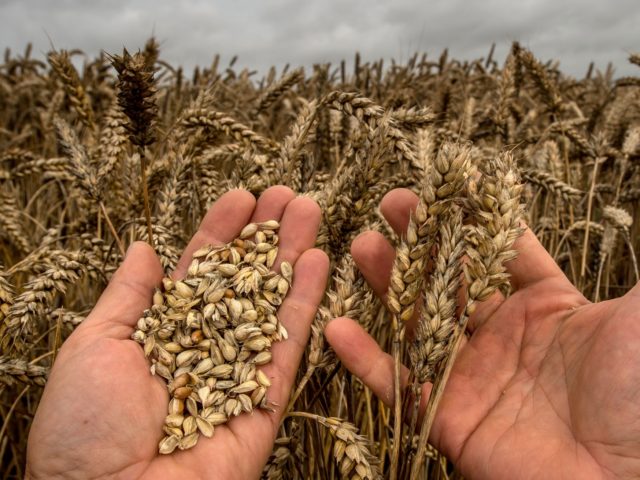The world is heading into a global food crisis thanks to the war in Ukraine, according to the head of one major Agri organisation.
Russia’s ongoing invasion of Ukraine is going to have a ‘catastrophic’ effect on the world’s supply of food, the head of one of the world’s leading fertiliser companies.
Both Russia and Ukraine account for a significant portion of the global grain supply, with both nations also having significant roles within the supply of fertiliser, as well as its raw materials.
However, with trade grinding to a halt as a result of the latest stage in the ongoing conflict, the head of one major fertiliser company is sounding off alarm bells.
“Half the world’s population gets food as a result of fertilisers… and if that’s removed from the field for some crops, [the yield] will drop by 50%,” Svein Tore Holsether, who heads up agri company Yara International, told the BBC.
“For me, it’s not whether we are moving into a global food crisis – it’s how large the crisis will be,” he went on to say.
Holsether emphasised that there was already significant supply difficulties before the start of the current conflict, with the BBC noting that the increased cost of gas prices was already resulting in a steep rise in the cost of fertiliser.
The Yara International boss also is reported to have pointed out that around a quarter of key nutrients used in food production come from Russia, with sanctions now looking likely to further constrain in supply.
“At the same time we’re doing whatever we can do at the moment to also find additional sources,” he emphasised. “But with such short timelines it’s limited.”
Svein Tore Holsether is not the only person putting forward a bleak picture of future food security, however.
Michael Scannell — a senior figure in the EU’s Agriculture Department — has said that the knock-on effects of the war in Ukraine will be “painful” for Europe’s Agri-Food sector, with a lot of the bloc’s fertiliser and animal feed being sourced from either Russia or Ukraine.
However, the EU bureaucrat was convinced that the European bloc would be able to get through the crisis.
“The consequences of this Russian aggression will have a major impact on our agri-food sector, and it will be painful, but, we have to suffer that pain,” Scannell said, noting that “Ukrainians are paying with their lives, not in Euros”, and so the cost did not seem so steep for the EU within that context.
Local politicians within the EU appear to have also grown increasingly concerned regarding the possibility of future shortages.
Hungarian Prime Minister Viktor Orbán has said his country must stay out of the conflict in Ukraine, noting the country’s reliance on Russian imports, while his government’s agriculture minister has emphasised that the country’s food supply must be protected.
“We condemn the war, especially that it is here in our neighborhood; we say no to violence, we stand together with our allies, and all this is important, but the most important thing is that Hungary should stay out of this war conflict,” Orbán is reported as saying.
Ireland also appears to be on a war footing in regards to the crisis, with the country’s minister of agriculture confirming that he will be asking farmers to increase grain production in the hopes of combatting supply shortages, mirroring government policy implemented within the country during the Second World War.
However, the Irish Farmers’ Association has warned officials against taking top-down measures without consulting farmers first.
“It would be very unwise of the Government to make any decisions on this before engaging fully with farmers,” a spokesman for the organisation said. “Irish farming is very different than it was in the 1940s. What was done then may not be the solution today.”

COMMENTS
Please let us know if you're having issues with commenting.